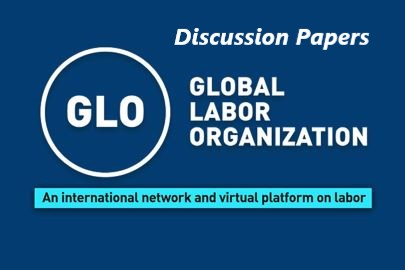A new GLO Discussion Paper finds that a poverty-reducing effect of collective bargaining institutions stems from the political strength of trade unions in promoting public social spending rather than from any direct effect on earnings inequalities.
GLO Discussion Paper No. 877, 2021
How Collective Bargaining Shapes Poverty: New Evidence for Developed Countries – Download PDF
by Pineda-Hernández, Kevin & Rycx, François & Volral, Mélanie
GLO Fellows François Rycx & Melanie Volral
Author Abstract: Although many studies point to the significant influence of collective bargaining institutions on earnings inequalities, evidence on how these institutions shape poverty rates across developed economies remains surprisingly scarce. It would be a mistake, though, to believe that the relationship between earnings inequalities and poverty is straightforward. Indeed, whereas earnings inequalities are measured at the individual level, poverty is calculated at the household level using equivalised (disposable) incomes. Accordingly, in most developed countries poverty is not primarily an issue of the working poor. This paper explicitly addresses the relationship between collective bargaining systems and working-age poverty rates in 24 developed countries over the period 1990-2015. Using an up-to-date and fine-grained taxonomy of bargaining systems and relying on state-of-the-art panel data estimation techniques, we find that countries with more centralised and/or coordinated bargaining systems display significantly lower working-age poverty rates than countries with largely or fully decentralised systems. However, this result only holds in a post-tax benefit scenario. Controlling for country-fixed effects and endogeneity, our estimates indeed suggest that the poverty-reducing effect of collective bargaining institutions stems from the political strength of trade unions in promoting public social spending rather than from any direct effect on earnings inequalities.

GLO Discussion Papers are research and policy papers of the GLO Network which are widely circulated to encourage discussion. Provided in cooperation with EconStor, a service of the ZBW – Leibniz Information Centre for Economics, GLO Discussion Papers are among others listed in RePEc (see IDEAS, EconPapers). Complete list of all GLO DPs – downloadable for free.
The Global Labor Organization (GLO) is an independent, non-partisan and non-governmental organization that functions as an international network and virtual platform to stimulate global research, debate and collaboration.
Ends;

